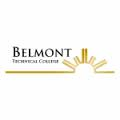What do they do?
Appraise, edit, and direct safekeeping of permanent records and historically valuable documents. Participate in research activities based on archival materials.
Also known as:
Accessioning Archivist, Archivist, Digital Archivist, Film Archivist, Image Archivist, Museum Archivist, Project Archivist, Records Manager, Reference Archivist, Registrar, State Archivist, University Archivist
-
0%
Change
Ranks #50 in job growth rate20Job Openings
Ranks #22 in net job growth
Looking for colleges that offer a specific major? Use the College Match Tool to find your best-matched schools and discover your estimated Net Price!
- Bachelor's degree (37%)
- Master's degree (36%)
- Some college, no degree (9%)
- Doctorate or Professional Degree (7%)
- High school diploma equivalent (6%)
- Associate's degree (5%)
- Less than high school diploma (1%)
Most Popular Majors that prepare Archivists
-
#1
-
Degrees Granted
106
-
Female Students
75
-
Male Students
31
-
Median Starting Salary
$36,700
-
-
#2
-
Degrees Granted
96
-
Female Students
86
-
Male Students
10
-
Median Starting Salary
$42,000
-
-
#3
-
Degrees Granted
3
-
Female Students
2
-
Male Students
1
-
Median Starting Salary
$47,533
-
-
#4
-
Degrees Granted
3
-
Female Students
3
-
Male Students
0
-
Median Starting Salary
$47,533
-
People in this career often have these skills:
- Reading Comprehension - Understanding written sentences and paragraphs in work-related documents.
- Active Listening - Giving full attention to what other people are saying, taking time to understand the points being made, asking questions as appropriate, and not interrupting at inappropriate times.
- Writing - Communicating effectively in writing as appropriate for the needs of the audience.
- Speaking - Talking to others to convey information effectively.
- Critical Thinking - Using logic and reasoning to identify the strengths and weaknesses of alternative solutions, conclusions, or approaches to problems.
- Active Learning - Understanding the implications of new information for both current and future problem-solving and decision-making.
People in this career often know a lot about:
- History and Archeology - Knowledge of historical events and their causes, indicators, and effects on civilizations and cultures.
- English Language - Knowledge of the structure and content of the English language including the meaning and spelling of words, and rules of composition and grammar.
- Customer and Personal Service - Knowledge of principles and processes for providing customer and personal services. This includes customer needs assessment, meeting quality standards for services, and evaluation of customer satisfaction.
- Computers and Electronics - Knowledge of circuit boards, processors, chips, electronic equipment, and computer hardware and software, including applications and programming.
- Administration and Management - Knowledge of business and management principles involved in strategic planning, resource allocation, human resources modeling, leadership technique, production methods, and coordination of people and resources.
- Administrative - Knowledge of administrative and office procedures and systems such as word processing, managing files and records, stenography and transcription, designing forms, and workplace terminology.
- Education and Training - Knowledge of principles and methods for curriculum and training design, teaching and instruction for individuals and groups, and the measurement of training effects.
People in this career often have talent in:
- Written Comprehension - The ability to read and understand information and ideas presented in writing.
- Category Flexibility - The ability to generate or use different sets of rules for combining or grouping things in different ways.
- Oral Expression - The ability to communicate information and ideas in speaking so others will understand.
- Written Expression - The ability to communicate information and ideas in writing so others will understand.
- Information Ordering - The ability to arrange things or actions in a certain order or pattern according to a specific rule or set of rules (e.g., patterns of numbers, letters, words, pictures, mathematical operations).
- Near Vision - The ability to see details at close range (within a few feet of the observer).
- Oral Comprehension - The ability to listen to and understand information and ideas presented through spoken words and sentences.
- Deductive Reasoning - The ability to apply general rules to specific problems to produce answers that make sense.
- Inductive Reasoning - The ability to combine pieces of information to form general rules or conclusions (includes finding a relationship among seemingly unrelated events).
People in this career often do these activities:
- Develop policies or procedures for archives, museums or libraries.
- Organize informational materials.
- Help patrons use library or archival resources.
- Develop library or archival databases.
- Direct activities of subordinates.
- Prepare materials for preservation, storage, or display.
- Evaluate characteristics of archival or historical objects.
- Order instructional or library materials or equipment.
- Plan community programs or activities for the general public.
- Research topics in area of expertise.
- Edit documents.
This page includes data from:

 Occupation statistics: USDOL U.S. Bureau of Labor Statistics Occupational Employment Statistics
Occupation statistics: USDOL U.S. Bureau of Labor Statistics Occupational Employment Statistics
 Videos: CareerOneStop, USDOL/ETA and the Minnesota Department of Employment & Economic Development
Videos: CareerOneStop, USDOL/ETA and the Minnesota Department of Employment & Economic Development


















